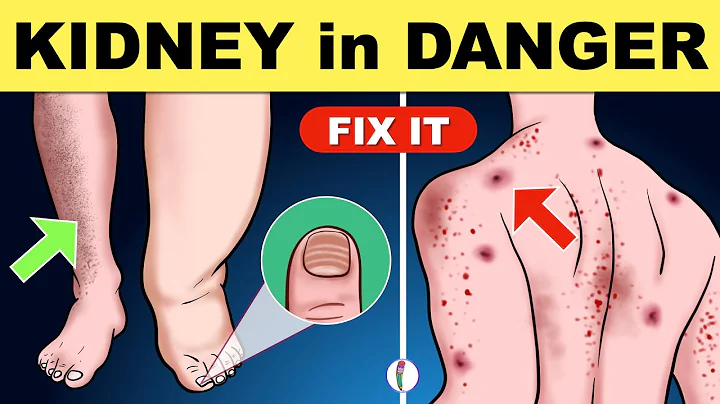Constipation is a common and extremely painful symptom of advanced cancer. Cancer patients with constipation will not only feel uncomfortable, but also affect their food intake. Persistent constipation can have serious consequences, including anorexia, nausea, vomiting, abdominal distension and pain, abdominal discomfort, fecal impaction, intestinal obstruction, and even delirium; it will also increase the anxiety and pain of patients and caregivers.
Constipation means that the frequency of defecation is too few, usually less than 3 times a week, it is difficult and laborious to defecate, dry and hard feces, small amount or poor emptying. It often occurs in cancer patients, especially elderly patients and patients with advanced cancer. The most common reasons are slowed intestinal peristalsis and intestinal dysfunction.

Constipation in cancer patients is caused by many factors. The reason why cancer patients have constipation is first of all due to tumors. Primary or metastatic tumors in the abdominal and pelvic cavity can cause intestinal obstruction, which blocks the passage of intestinal contents, so that very little feces reaches the rectum and cannot trigger the defecation reflex, causing constipation.
At the same time, cancer patients eating too little, drinking too little, and being inactive can cause constipation. Many cancer patients have poor appetite, do not eat enough food, drink too little water, and have long-term underfull and dry intestinal cavities, making natural defecation infrequent and difficult. At the same time, cancer patients are relatively weak, stay in bed too much, and have reduced activity. intestinal peristalsis slows down , making it difficult to push intestinal contents forward, and constipation is easy to occur.
Chemotherapy drugs, diuretic and dehydration drugs used by patients during chemotherapy can cause Qi deficiency, intestinal dehydration, weak conduction, and constipation; antiemetic drugs can cause low gastrointestinal function; vinblastine chemotherapy drugs can cause nervous system Functional disorders of can easily cause constipation. At the same time, chemotherapy patients often feel tired and weak and are unwilling to get out of bed, resulting in prolonged bed rest, weakening the contractility of the diaphragm, abdominal muscles, and anal sphincter, reducing abdominal pressure, and insufficient intestinal peristalsis, resulting in insufficient defecation motivation. The feces cannot be discharged cleanly, fecal lumps remain, and constipation occurs.

So, can cancer patients solve the problem of constipation? Nutritional support is an important guarantee for patient recovery. Chemotherapy patients have poor gastrointestinal function and should eat light and easy to digest. At the same time, in order to avoid aggravating the gastrointestinal burden of the patient, it is necessary to eat small meals frequently. In addition, as the patient continues to recover, the patient can also be gradually allowed to eat beans, seasonal fruits, etc. that are rich in crude fiber to enhance the patient's appetite. Patients are also encouraged to drink more water, ensuring 2000-3000ml a day. By effectively replenishing water, intestinal peristalsis can be promoted.
At the same time, good defecation habits should be developed. The best time to defecate is in the morning. Do not hold in your bowels forcibly. This will allow toxins to be absorbed by the body again, disrupting the defecation time and making defecation abnormal. Do not use excessive force when defecating, and do not play with your phone while defecating. The defecation time should not exceed 5 minutes. If the time is too long, the anus will be overcongested, which will induce hemorrhoids . After defecation, you should promptly use warm water to wash your buttocks and around the anus to keep your buttocks clean and hygienic.

For people who already have tumors, constipation is simply adding insult to injury. Not to mention the pain itself or the discomfort caused by the treatment, just the bloating and nausea caused by constipation can also be difficult for patients to cope with. Therefore, it is necessary to actively prevent and treat the disease, eliminate toxins in a timely manner, avoid adding burden to the already weak body, and accelerate the body's recovery. For cancer patients with long-term constipation, drug treatment is necessary. Traditional Chinese medicine takes a holistic approach and treats different causes based on syndrome differentiation. While relieving constipation, it can also adjust the patient's disordered gastrointestinal function and improve the patient's physical condition. Traditional Chinese medicine has many advantages in treating tumors, which cannot be ignored and are indispensable. For cancer patients, syndrome differentiation and treatment should still be emphasized in cancer treatment. We must start from a holistic concept, not only consider the patient's local treatment, but also make systematic adjustments to the overall physical condition, so that the patient can achieve a balance of yin and yang, evil and righteousness in the body, and relieve the physical pain of cancer patients, so as to control tumors. growth to achieve long-term survival.





















